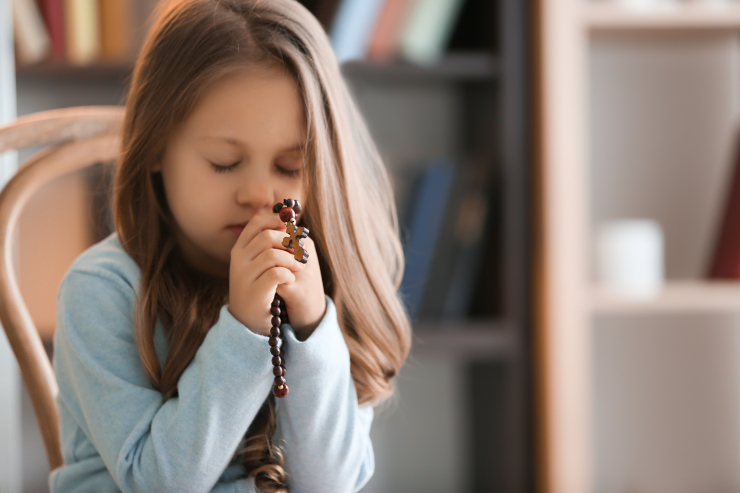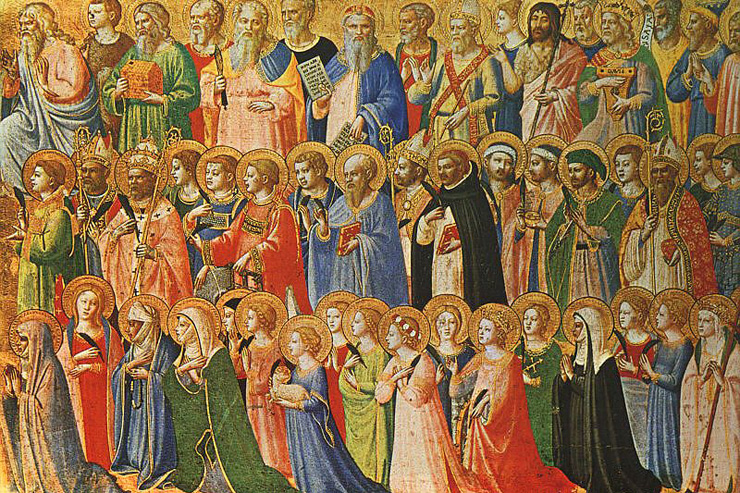
“As priests, we are united to Christ and His sacrifice in the offering we make of ourselves and our daily lives.”
This Sunday’s second reading is a continuation of the trek through 1 Peter that we began after Easter. This week, we are reminded of our baptismal calling to be his witnesses as priests, prophets, and kings.
Peter’s audience, many of them Jews, would have known that Peter is making a reference to the history of the Jewish people. After the Israelites reach Mount Sinai, God tells Moses he desires to make a covenant with the people. “Now therefore, if you obey my voice and keep my covenant, you shall be my own possession among all peoples; for all the earth is mine, and you shall be to me a kingdom of priests and a holy nation” (Exodus 19:6-5).
We know what happens shortly after, however – the incident of the golden calf. The people don’tobey his voice and keep his covenant. Nevertheless, God remains faithful. He renews his covenant with them again and again.
Peter is calling us back to this initial vocation. In the new covenant, we are all anointed. First and foremost, we are anointed in the sacrament of Baptism. Then we are anointed again when that baptismal grace is perfected in the sacrament of Confirmation.
While the ministerial priesthood is formed through the sacrament of Holy Orders, Baptism and Confirmation – both of them anointings – create and strengthen the common priesthood of the faithful. As priests, we are united to Christ and His sacrifice in the offering we make of ourselves and our daily lives.
In Romans 12:1-2 Paul exhort us to present our bodies as living sacrifices: “I urge you therefore, brothers, by the mercies of God, to offer your bodies as a living sacrifice, holy and pleasing to God, your spiritual worship.”
Likewise, Peter calls us to offer spiritual sacrifices: “let yourselves be built into a spiritual house, to be a holy priesthood to offer spiritual sacrifices.”
Throughout our daily lives, we are called to be Christ’s priests: silently offering the sacrifices presented to us. These sacrifices may be physical, emotional, psychological, or spiritual. As the Second Vatican Council reminds the Church, “[The laity] exercise the apostolate in fact by their activity directed to the evangelization and sanctification of men and to the penetrating and perfecting of the temporal order through the spirit of the Gospel. In this way, their temporal activity openly bears witness to Christ and promotes the salvation of men. Since the laity, in accordance with their state of life, live in the midst of the world and its concerns, they are called by God to exercise their apostolate in the world like leaven, with the ardor of the spirit of Christ.” (Apostolicam actuositatem, 2)
At the end of the second reading on Sunday, Peter reminds us of our mission. We are called to evangelize: “You are ‘a chosen race, a royal priesthood, a holy nation, a people of his own, so that you may announce the praises’ of him who called you out of darkness into his wonderful light.”
Israel was called to be the chosen people in order to call other nations to the one true God. They were called to be an “elder brother” to surrounding nations so that they would be led to knowledge of God and into the family. That’s our call. We are set apart by anointing and given the graces of the sacraments, and it is for the praise and glory of God. It is so that we can go and announce the Good News.
We may not be accepted. No one may listen to us. After all, Peter reminds us we are following a “living stone rejected by human beings,” that has caused people to stumble and fall. We are not accepting this call expecting an easy life. We preach a Gospel that is a “stumbling block” and a “folly” (1 Cor 1:23).
Don’t expect the vocation to be easy. But expect it to be rewarding. God has called you out of darkness. He has set you apart and anointed you for a mission. Let us be His instruments in the sanctification of the world.
Please share this article on Facebook and other social media.














